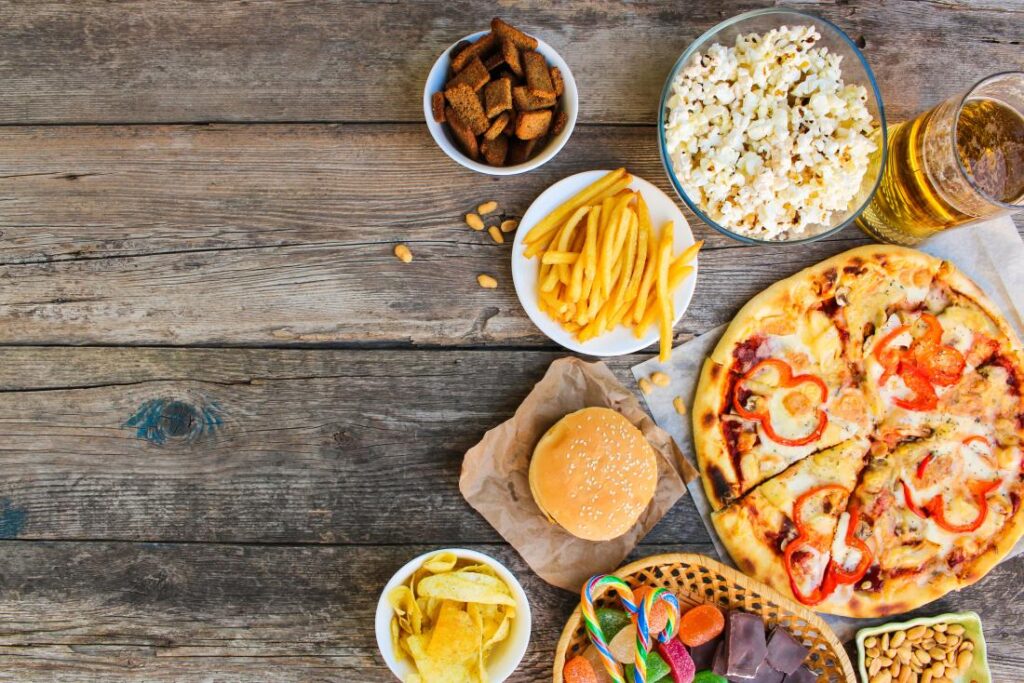Do Processed Foods and Beverages Increase the Risk of Cancer?
Do Processed Foods and Beverages Increase the Risk of Cancer?
The health effects of processed food and food additives on health. Media reports that ultratreated foods can increase cancer risk include a broad cohort of therapy conducted to examine the relationship between treatment and cancer on the skin of 104,980 adults in France.Individuals participating in the research are followed between 2009 and 2017, and their food consumption for 24 hours is taken online once every 6 months. In addition to their consumption, demographic and lifestyle characteristics such as gender, age, health status, smoking status, body mass index, family history of cancer, socio-economic status and physical activity level are evaluated. How their health status is changed and their clinical opportunities are followed every year

What do the results of the research say?
NOVA classification is the classification that divides food and beverages into 4 groups according to the nature, purpose and degree of the processing method applied to them.Using the NOVA classification of food and drink, the researchers categorize food and drink
into four groups based on the level of processing. It represented the highest level of “ultraprocessed” (mass-produced bread and cakes, snacks, sugar-containing foods, sodas, ready meals and meat products were considered in this group) food and drink. In the diet, it is
reported that for every 10% increase in ultra-processed food consumption, there is a 12% increase in cancer risk. When the risk of cancer types is analyzed separately, there is an 11% increase in the risk of breast cancer, while there is no increase in the risk of colon and prostate cancer. It is stated that breast cancer may increase in the postmenopausal period.There is no association between the consumption of processed foods such as canned vegetables, salted meats, cheese that contain salt or sugar and cancer risk. Consumption of “lowly processed or unprocessed food” is associated with a lower risk of cancer. It is determined that with every 10% increase in the consumption of these foods in the diet, the risk of cancer decreases by 9%.
Food consumption and lifestyle, which are questioned at regular intervals, are variable:
Food consumption and lifestyle vary. Although the researchers aim to evaluate the food consumption of individuals both on weekdays and on weekends, the evaluation still reflects 24-hour-1 daily consumption, so it may not reflect general dietary habits and consumption.
Limited factors that may play a role in cancer risk were considered:
It is not known how factors that may play an important role in cancer risk, such as various environmental carcinogens, radiation, viral and other infections, and exposure to harmful sun rays, affect the results.There is strong evidence that breast, prostate, and bowel cancers are associated with diet,but in this study, high ultra-processed food consumption was only associated with breast and overall cancer risk.There is evidence that certain foods and nutritional components may be associated with different cancer risks, but in this study, foods were classified based on how processed they were, regardless of their nutritional content. Therefore, a wide range of foods, from confectionery to processed meats, whole-grain breads to whole-grain breakfast cereals, have been rated as “ultra-processed”.

What are the authorities saying?
- European Food Safety Authority (EFSA) guidelines; It specifies the amount of carbohydrates, proteins, fats and vitamins that should be collected daily and recommends consuming fresh vegetables or fruits every day for 5 years. EFSA does not declare a consumption period or an upper limit for ultra-processed foods and beverages.
- One of the important targets of the European Food and Nutrition Action Plan 2015-2020 is the realization of food and beverage environments and storage that will promote health. In this way, the content of the food and beverages produced can be increased.
- The World Fund for Cancer Research (WCRF) continues to broadly diversify between diet, lifestyle and cancer risk.
- Based on the available findings, WCRF also makes recommendations such as avoiding high-energy foods and sugary drinks, limiting salt intake, limiting consumption of processed and red meat, and consuming more plant-based foods.
- Healthy food and nutritional components, although cancer risk has progressed, treatment
has not been scientifically demonstrated to increase cancer risk per se.
Ways to Reduce Processed Food Consumption
- Keep healthy snacks on hand
- Replace refined grains with whole grains
- Being creative in the kitchen protects you from unprocessed foods.
- Change the way you shop
- Eating more vegetables means you’ll get less processed food
- Eat less processed meat
- Replace some of your simple favorite processed foods with alternatives.
- Make changes slowly.